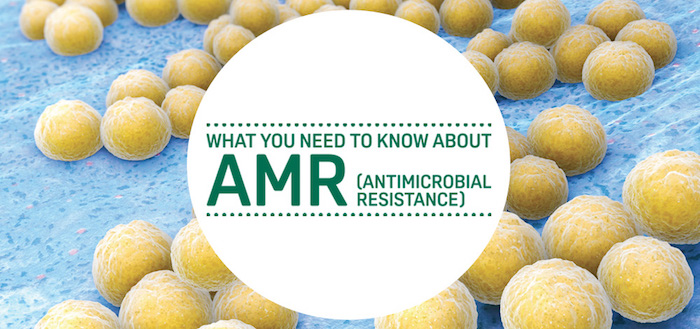The Responsible Use of Medicines in Agriculture (RUMA) alliance has welcomed an official report confirming that the risk of foodborne-illness from Livestock-Associated (LA) MRSA is low.
The Food Standards Agency (FSA) has published a report assessing the risk associated with the preparation, handling or consumption of foodstuffs which may be contaminated with MRSA, in particular LA-MRSA.
It concludes that the risk is very low and that prevalence in animals is much lower in the UK than other EU member states.
It concludes: “Current data suggest that LA-MRSA infection is rare in humans in the UK and such organisms are not readily transmitted from person to person. To our knowledge there have been no reported foodborne outbreaks of LA-MRSA in humans in either the UK or worldwide.”
Unlike other European countries where LA-MRSA has been isolated from animals since 2007, the first isolation of LA-MRSA from food-producing animals in the UK was from a poultry farm in November 2013. The first isolation from a pig was in May 2014.
The report adds: “The prevalence of LA-MRSA in animals in other European countries appears to be significantly higher than in animals in the UK. Current data suggest that the prevalence of food contaminated with LA-MRSA is low in the UK.”
LA-MRSA has been shown to enter the food chain and survive on raw meat up to the point of retail, although thorough heat treatment of raw meat is sufficient to destroy the bug and other vegetative bacteria. The LA-MRSA CC398 strain has distinct genotypic and phenotypic features that separate it from other MRSA variants, meaning it is ‘unlikely to be associated with cases of staphylococcal food poisoning/intoxication’.
“Based on current evidence, there are no reported cases of LA-MRSA being contracted through ingestion of contaminated foodstuffs, in the UK,” the report adds.
“In conclusion the risk to human health from the preparation, handling and/or consumption of LA-MRSA/MRSA contaminated foodstuffs in the UK is very low, especially when compared to other routes of transmission.”
The report acknowledges that there are uncertainties surrounding the prevalence of LA-MRSA in food and food animals and that there is ‘clearly a need to revisit this risk assessment as new data become available’.
But FSA’s advice remains unchanged – that raw food should be stored appropriately, handled hygienically and cooked thoroughly.
“In combination, these measures should be sufficient to ensure that any harmful bacteria present are destroyed,” its report says.
The FSA LA-MRSA report and more facts about tackling antimicrobial resistance can be viewed here
Industry response
Dr Ian Brown, Oxford Consultant Clinical Research Fellow and member of RUMA’s independent advisory Scientific Group, said the review brings helpful clarification in a number of areas concerning LA-MRSA.
“It highlights that current data suggest LA-MRSA infection is rare in humans in the UK and such organisms are not readily transmitted from person to person. To the FSA’s knowledge, there have been no reported food borne outbreaks of LA-MRSA in humans in either the UK or worldwide,” he said.
“Furthermore, the indication is that prevalence of food contaminated with LA-MRSA is low in the UK.”
Dr Brown said that, despite the conclusions and reiteration of advice about storing, handling and cooking food, the farming sector – as part of a One Health approach alongside human medicine – will continue to focus on strategies to reduce use of antibiotics and improve hygiene.
“This will minimise opportunities for resistance to antibiotics to develop or for any resistant or other bacteria to pass to humans,” he said.
NPA senior policy advisor Dr Georgina Crayford said: “The FSA’s assessment brings welcome clarity to the situation regarding LA-MRSA and confirms what we have said all along.
“Prevalence is believed to low in the UK, relative to other parts of Europe, while the risk of food-borne contamination is classified as ‘very low’. Proper storage, handling and cooking of meat will destroy any bacteria that are present.
“But these findings will not in any way detract from the pig industry’s efforts to reduce and refine antibiotic use, as encapsulated in our multifaceted Antibiotic Stewardship Programme.
“We urge producers to continue to record usage data on the eMB-Pigs database and to be continually mindful of ways to administer antibiotics more responsibly.”
John Fishwick, junior vice president of the British Veterinary Association, said:
“The outcome of this risk assessment is very positive news and we would encourage everyone to follow the FSA’s advice around food hygiene when storing, preparing and handling meat.
“However, it’s vital we don’t become complacent. It is highlyimportant that vets continue to lead the way in encouraging the responsible use of antibiotics, to ensure valuable antimicrobials remain effective and that diseases and infections can be efficiently treated.”
Sensational media reports have previously claimed the UK is on the verge of a major food health scare after LA-MRSA was found in packs of supermarket mince. The reports have linked the LA-MRSA risk to antibiotic use in farming.
The NPA issued a strong response to a ‘misleading and inflammatory’ report in the Daily Mail last year, pointing to independent scientific advice to dismiss the allegations made.




